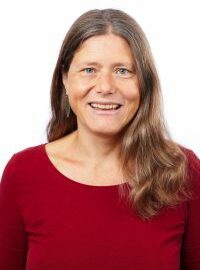Event Recap: How to adjust clinical trials in the face of COVID-19
BY: NATALIE GOLD
Clinical trials are a vital part of advancing medicine. Just take the COVID-19 vaccine for example: without the existence and continuation of clinical trials, the United Kingdom would not have been able to begin administering a vaccine this week. But there are other clinical trials unrelated to the coronavirus that are necessary to keep medical research moving forward. The problem is, COVID-19 has been a source of major disruption.
How do you continue clinical trials in a world where it isn’t safe to be together? Researchers and scientists have been working to answer this question since the beginning of the pandemic.

On December 7, the Hariri Institute for Computing, along with the Department of Biostatistics at the BU School of Public Health and the Department of Mathematics & Statistics at the BU College of Arts & Sciences, hosted a webinar “Adjusting Non-COVID-19 Clinical Trials in the era of the Pandemic: Statistical Design and Analysis” in the hopes to outline the disruptions caused by COVID-19 and present ways to move forward.
Joe Massaro, a Professor in the Department of Biostatistics in BU’s School of Public Health, began the presentation with a summary of FDA and EMA-level guidance. Ludovic Trinquart, Associate Professor in the Department of Biostatistics in BU’s School of Public Health, then explained some of the statistical ways to think about challenges clinical trials are experiencing due to disruptions caused by COVID-19. Judith Lok, Associate Professor in the Department of Mathematics and Statistics in the BU College of Arts and Sciences, rounded out t he presentations discussing how researchers can adapt the design of their trials to continue moving forward with statistical significance in mind.

Massaro, Trinquart, and Lok each explained the implications of participants’ withdrawals from clinical trials, whether it be due to safety concerns or illnesses. They noted that there are ways for scientists to work with the data that they have. But in some cases where there are too few participants to conduct a statistical analysis, the scientists might need to collect additional data at a later date. The three speakers echoed the need to validate the data collection methods by comparing the new data to previously collected data using a sensitivity analysis.

In some instances where clinical trials had to be stopped altogether, important endpoints might be missing from the data. This lack of data is detrimental to understanding the impacts of potential treatments and medicine. Massaro, Trinquart, and Lok all explained the importance of researchers communicating clearly with regulatory agencies to ensure the safety and success of future trials. Whether that means discussing the stop in data collection, or explaining how the trial was redesigned so that data can continue to be collected remotely, communication is key.
For every piece of advice given, the three speakers made sure to clarify that scientists need to analyze the specificities of their own clinical trials. What works for one trial might not work for another. With this critical thinking, researchers can determine how to move forward.
The Hariri Institute is proud to play a part in spotlighting some of the ways that researchers can move forward with non-COVID-19 clinical trials that are searching for treatments that could change, or even save, people’s lives. It may seem that things are at standstill, but the world keeps turning, and researches are making sure that, through statistical analysis of their clinical trial data, their work can continue safely and accurately.
To watch the full event, visit here.
Interested in learning more about the transformational science happening at the Hariri Institute? Sign up for our newsletter here.
